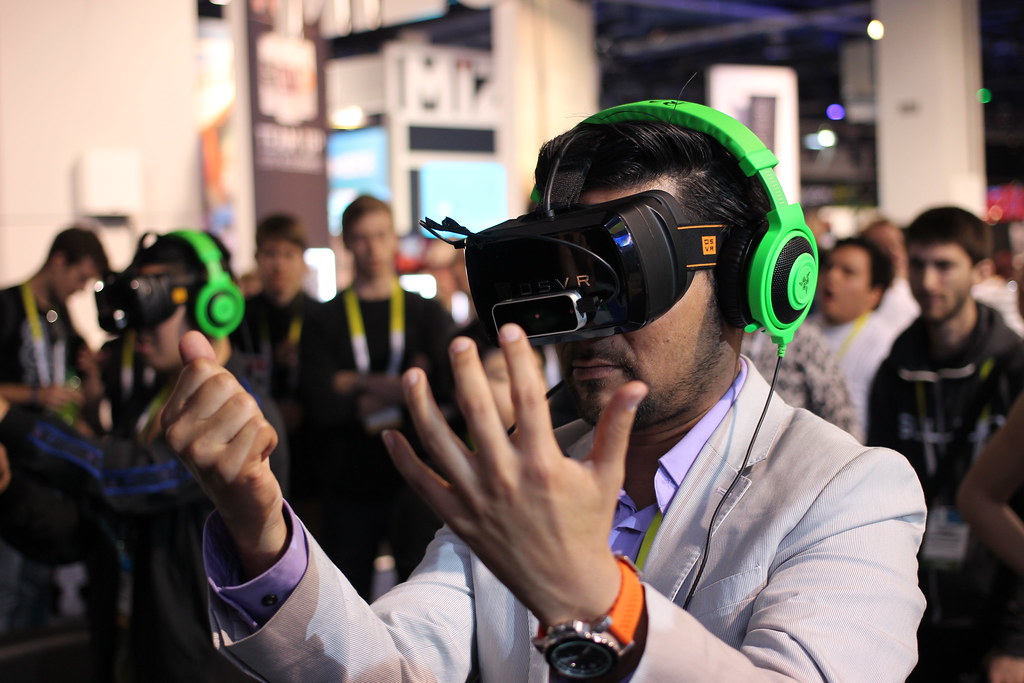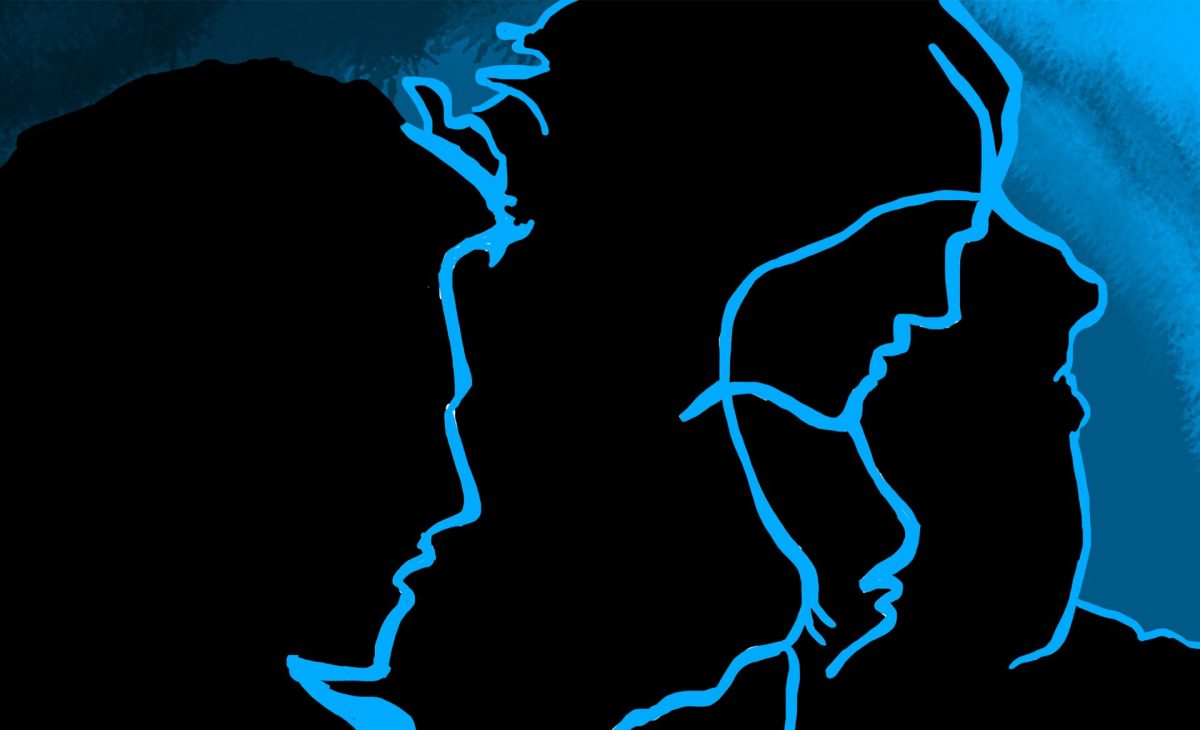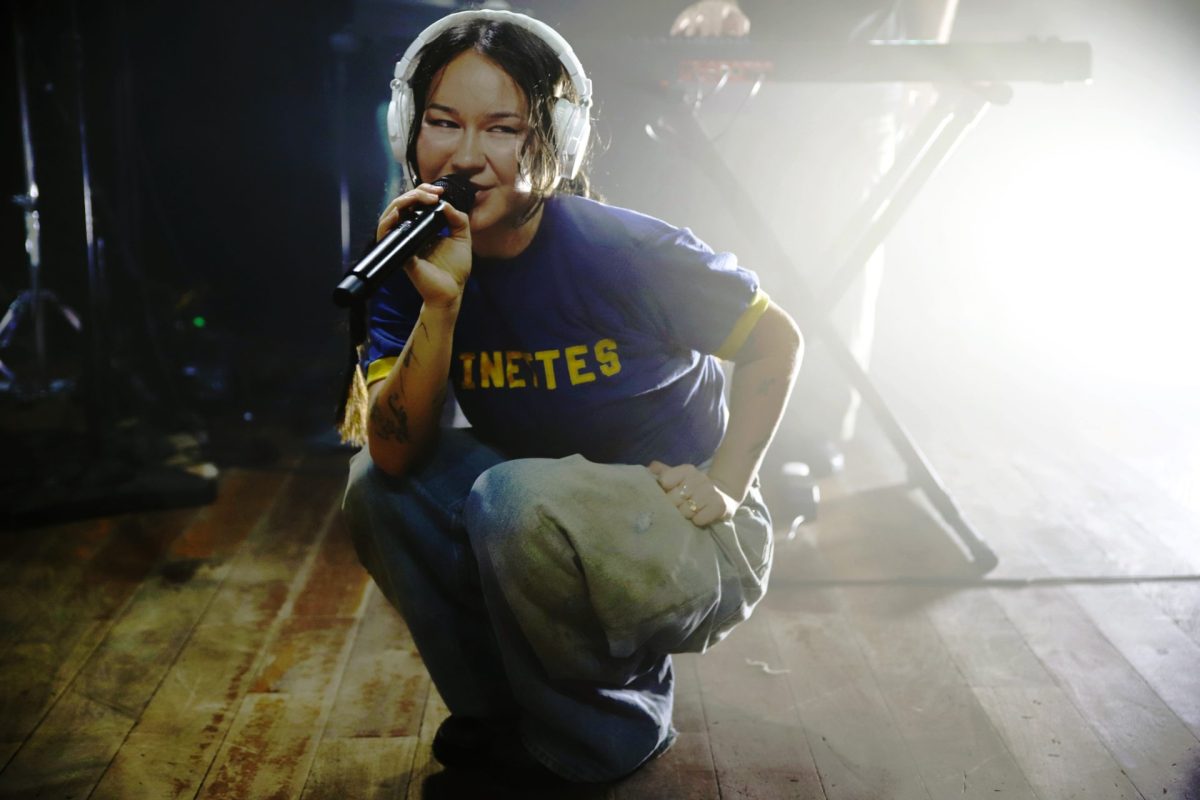Society is no stranger to global dilemmas, a theme parallel in the sci-fi action film “The Creator,” a story centered around the rise of technology. Set in East Asia, the film follows an ex-special forces agent tasked with killing an expert engineer of artificial intelligence known only as the Creator. Uncovering a secret AI child, his mission is turned as the fate of both man and machine lie in the hands of an innocent invention.
In a panel on Sep. 25 hosted by DePaul University’s virtual augmented reality communication lab, a center within the College of Communication, DePaul professors spoke on the growth of augmented reality (AR) and AI alongside themes of the film. Panelists would go on to challenge the standards of new technology in our modern climate. For Paul Booth, associate dean of Student Affairs and Engagement and professor at College of Communication, this obstacle could stand to reinvent the effects of innovation.
“It seems like instead of bringing people together, which is what we always imagined technology would do, it might actually be fracturing,” Booth said.
As the digital world evolves in its own way, the idea of our favorite tool beginning to grow a mind of its own has taken on a whole new meaning. AI is society’s latest dilemma, with continued change to be made on these recent creations.
Alongside speakers Samantha Close, assistant professor at DePaul’s College of Communication, and LeAnne Wagner, professional lecturer at DePaul’s School of Design, the panel offered insight into the story and its focus on rising technology.
Broad discussion centered around the film’s themes of economy, politics, religion and morality in its own way. Focused on the rise of digitization in a changing world, conversation expressed the openness available in virtual reality (VR) and it’s appeal to human users.
“I think we’ve always seen people find a certain freedom when they’re in an avatar situation,” Wagner said. “When they create an avatar, [people] craft their own identities, but I think VR is becoming intermixed in some ways. You’re not just this little icon on the screen anymore.”
Endless options in look, style, talent and expression expose the variety offered by a digital world. As one becomes integrated into both physical and digital landscapes, areas of separation are harder than ever to find and could be unnecessary when one’s character comes into play.
“We often get into these conversations about what is it that makes us human, [what] is it that makes us real,” Booth said. “And it’s always about defining us against something else, but the more you interrogate what that something else is, the more you realize that that difference isn’t really significant.”
The panelists would discuss emotions in relation to technology, with a defined line on how connections are made. To them, if a relationship belonged to either human or digital beings, their existence defined their worth.
“Whether it is real is almost beside the question because your attachment to it is definitely real,” Close said. “Social constructs are real, with real emotions attached to them.”
Close said, in a world where smartphones can die and networks can crash, humanizing our gadgetry is a second-hand effect of endless interaction. Every question posed to Alexa and request asked of Siri is built on this human-to-digital interaction.
As the speakers dicussed these advancing systems, questions posed showed that a conscious effort means avoiding the dangers of mankind’s own faults. As the core of AI is founded on human principles, establishing a sound and universal code of action can be the difference between right and wrong, between utopia and dystopia.
“You’ve got to decide where your biases are going to be early on, and that’s where a lot of the disagreements among philosophers come from,” Close said. “Questions like, ‘what is it that you’re going to hold to as the central thing that all other concepts kind of flow from?’ Even more so, who determines that is the big thing?”
World powers and tech companies must balance between danger and development as AI continues to expand. To a world of computer-savvy civilians, being understood is its algorithm entirely. In “The Creator,” this concept is grounded between the hardened military lead and his child robot companion.
“You need to know your audience,” Wagner said. ‘They’re not going to be the same wherever you develop AI. I feel strongly that if you always go back to that idea that at least your attempts will be rooted in some type of human factor.”
As the stakes of AI riddle itself with fear and hope, questions of what to expect from this evolving technology are at the forefront of educator’s minds. With panels like this, the first to take is by getting the right conversations going.
“We have to train the people who make AI in ethics and in morality through these sorts of conversations,” Booth said. “I don’t know if there are very many tech programs that have an ethical component, but I think it’s crucial. I think it’s absolutely crucial.”








